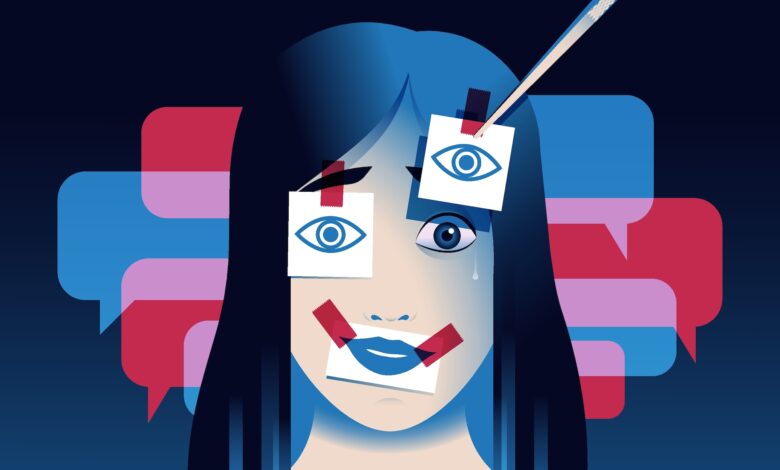Spreading AI-generated content could lead to expensive fines

The rise of AI-generated deepfake materials on the internet has become a concerning issue, with potentially dangerous consequences. In recent times, AI has been utilized to create deceptive voice clones of prominent figures like former US presidents and spread fake images depicting children in natural disasters. Additionally, nonconsensual AI-generated sexual images and videos have caused trauma to individuals ranging from high school students to celebrities like Taylor Swift. Despite efforts by tech giants like Microsoft and Meta to identify instances of AI manipulation, the success has been limited. As a result, governments are now stepping in to address the problem by imposing fines.
In a significant development, lawmakers in Spain have advanced new legislation that could fine companies up to $38.2 million or a percentage of their global annual turnover if they fail to properly label AI-generated content. This move aligns with the broader EU AI Act guidelines and seeks to enforce stricter transparency requirements on high-risk AI tools like deepfakes. The Spanish bill aims to deter the dissemination of misinformation through AI and ensure that AI-generated content is accurately labeled to prevent deception.
Furthermore, the legislation in Spain also prohibits the use of subliminal techniques on vulnerable groups and places restrictions on the use of biometrics tools like facial recognition to infer personal attributes. If approved by Spain’s lower house, this bill would make Spain the first EU country to enforce the AI Act’s guidelines on deepfakes and could serve as a model for other nations to follow.
On the other side of the Atlantic, US states are also taking steps to combat deepfake content. South Dakota lawmakers have introduced a bill that would require individuals and organizations to label political deepfake content created or shared within 90 days of an election. Exemptions for media outlets and satire or parody content are included in the bill, which is part of a broader trend of state-level legislation targeting deepfakes.
Several other states like Texas, New Mexico, Indiana, and Oregon have enacted laws specifically addressing deepfakes influencing political campaigns. These efforts gained momentum after a high-profile incident involving an AI-generated voice clone of President Joe Biden making robocalls in New Hampshire. The Federal Communication Commission imposed a fine on the individual responsible for the deepfake, signaling a strong deterrent against election interference through AI manipulation.
Moreover, some states have also passed laws criminalizing the distribution of nonconsensual AI-generated sexual content, known as revenge porn. The prevalence of such harmful deepfake material online has prompted lawmakers to take action to protect individuals from exploitation and privacy violations. Efforts at the federal level to address deepfakes are ongoing, with the potential for more comprehensive regulations in the future to combat this growing threat to online safety and security. Earlier this month, First Lady Melania Trump made a strong statement in support of the “Take It Down Act,” a controversial bill aimed at addressing the issue of nonconsensual intimate imagery (NCII) being posted on social media platforms. The bill, if passed, would not only make it a federal crime to share NCII but also require platforms to remove such content within 48 hours of it being reported. The Senate has already passed the bill, and it could soon come up for a vote in the House.
During a roundtable discussion on online protection and the Take It Down Act, Melania Trump expressed her concern for young individuals, especially girls, who are facing the challenges posed by malicious online content like deepfakes. She emphasized the damaging impact that this toxic environment can have on individuals.
While the intention behind limiting deepfakes is commendable, critics have raised concerns about the potential drawbacks of such legislation. The Electronic Frontier Foundation (EFF) has cautioned against the use of overly broad language in some state laws targeting political deepfakes, warning that it could inadvertently criminalize legitimate speech. The EFF has also criticized the Take It Down Act and similar bills for creating an incentive to falsely label legal content as nonconsensual deepfakes in order to have it censored.
2025 may mark a turning point in global efforts to combat AI-generated deepfakes, with more European countries likely to introduce legislation criminalizing the creation and dissemination of deepfakes. These laws are expected to align with the frameworks established in the EU AI Act.
In the US, the country is on the brink of passing its first federal bill banning deepfakes. However, the effectiveness of these laws remains to be seen, as tech companies and political campaigns targeted by them are likely to mount legal challenges that could strain government resources. The outcome of these potential legal battles will determine whether deepfake laws can achieve their intended goals without infringing on free speech rights.
As the debate around deepfake legislation continues, it is crucial for lawmakers to strike a balance between protecting individuals from harmful content and safeguarding freedom of expression. Finding this equilibrium will be essential in effectively addressing the growing threat posed by deepfakes in the digital age. The rapid advancement of technology has revolutionized the way we live, work, and communicate. From smartphones to social media platforms, technology has become an integral part of our daily lives. However, with this rapid advancement comes the need for constant innovation and improvement.
One area that has seen significant growth in recent years is artificial intelligence (AI). AI refers to the simulation of human intelligence in machines that are programmed to think and act like humans. This technology has the potential to revolutionize industries such as healthcare, finance, and transportation.
One of the most exciting developments in AI is the use of machine learning algorithms. These algorithms allow machines to learn from data and make decisions without being explicitly programmed. This has led to breakthroughs in areas such as image recognition, speech recognition, and natural language processing.
Another area where AI is making a significant impact is in healthcare. AI-powered tools can analyze medical images, predict patient outcomes, and even assist in drug discovery. This has the potential to improve patient care, reduce costs, and save lives.
In the financial industry, AI is being used to detect fraud, automate trading, and personalize customer experiences. By analyzing vast amounts of data, AI can identify patterns and trends that would be impossible for humans to uncover.
In transportation, AI is being used to optimize traffic flow, improve logistics, and develop autonomous vehicles. These advancements have the potential to reduce congestion, improve safety, and revolutionize the way we travel.
Despite the incredible potential of AI, there are still challenges that need to be addressed. One of the biggest challenges is the ethical implications of AI, such as bias in algorithms and the potential for job displacement. It is essential that we address these challenges to ensure that AI is used responsibly and ethically.
Overall, the rapid advancement of AI is reshaping industries and transforming the way we live and work. With continued innovation and collaboration, AI has the potential to revolutionize the world in ways we never thought possible. It is an exciting time to be a part of this technological revolution, and the possibilities are endless.





